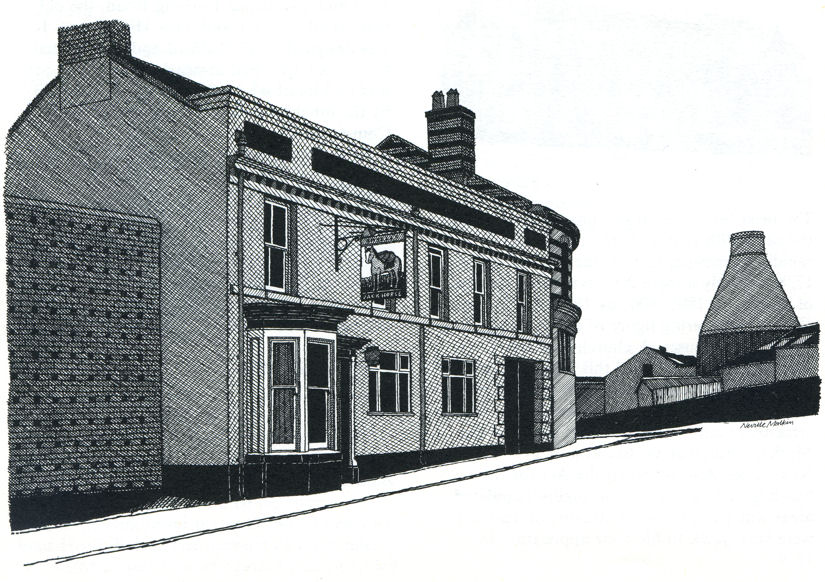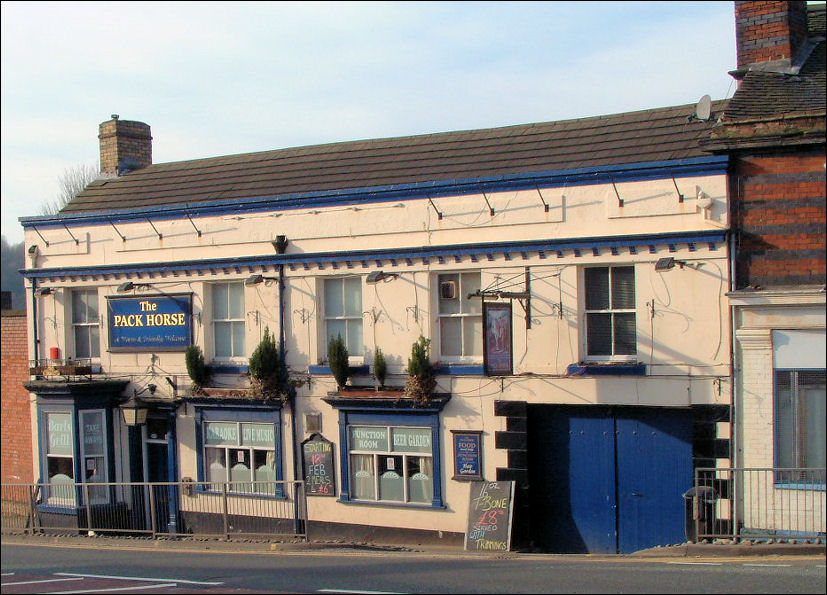|
|
|
![]() back to "The Grand Tour" index
back to "The Grand Tour" index
Neville Malkin's "Grand Tour" of the Potteries
buildings of
Longport
![]()
![]()
![]()
next: Middleport Pottery
previous: Christ
Church, Tunstall
contents: index of buildings of Tunstall and surrounding area
|
No 39 - Pack Horse Inn, Longport
|

Pack Horse Inn, Longport
pen drawing by Neville Malkin -
Dec 1974

Pack Horse Inn, Longport
photo: Feb 2008
|
"This
public house, the Pack Horse Inn at Longport, on the banks of the
Trent and Mersey Canal, at the side of the old packhorse road from
Tunstall and Burslem to Newcastle, was built during the mid-18th
century, at a time when long trains of packhorses were employed to
carry raw materials and manufactured goods to and from the pottery
towns. These heavily-laden packtrains, which negotiated the
treacherous roads, sometimes consisted of as many as 40 horses, with
the leading horse wearing a bell to give warning of its approach. The inns built along these routes were often named "Pack Horse" because they catered for the men in charge of the horses. This particular inn had its own brew-house, and extensive yard for stabling the horses, which was later used for the horses that towed the narrow boats. The local coroner also held his court at this inn, probably because of the several unfortunates who drowned in the nearby canal. This area, where only a few cottages stood, was formerly called Longbridge, taking its name from a footbridge of planks which extended about 100 yards across marshland through which the old Newcastle road used to pass before the building of the Turnpike in the 1760s. On the completion of the canal in 1777 and the subsequent building of several houses and manufactories on its banks, the area became known as Longport. Industry developed rapidly, and, at the beginning of the 19th century, there were four public wharfs and several private, at Longport, Port Vale, Smallbridge and Middleport. The first industries were developed by John Brindley, younger brother of the famous engineer."
|
![]()
![]()
![]()
next: Middleport Pottery
previous: Christ
Church, Tunstall
contents: index of buildings of Tunstall and surrounding area
back to "The Grand Tour" index